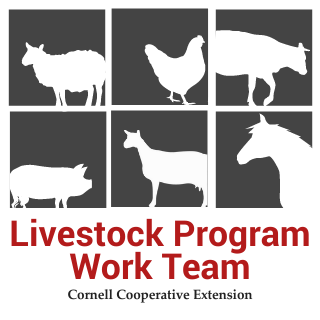Internal parasites are one of the biggest health problems affecting small ruminants in the Northeast. Dewormer resistance is becoming commonplace. As a result, producers need to know how best to manage parasites. In this workshop, producers will learn the basics of parasite control as well as how to develop integrated parasite management programs for their farms.
We will also provide hands-on training on how to use the FAMACHA© Anemia Card (good only for the barber pole worm) as part of a 5-point check to determine which animals in your herd or flock most likely need deworming. This workshop will also include hands-on training on doing fecal egg counts.
Who is this for? Sheep, Goat and Alpaca Producers.
What will you learn at Tuesday, October 10th session? Know your parasites. Know your tools - management practices, prescribed grazing, animal selection. When to worm or not to worm. Hands-on FAMACHA scoring and 5-point checks (health exam).
What will you learn at Thursday, October 12th session? Hands-on training for fecal egg counts. Preparing slides, identifying parasites under microscope.You are welcome to bring a refrigerated fecal sample of 8 to 10 fecal pellets from one sheep, goat, alpaca or llama at your farm to the workshop.
Space is limited - preregistration is required!
Instruction led by: Amy Barkley, Livestock Specialist, Southwest NY Dairy, Livestock & Field Crop Team; Kathy Bliss, Associate Professor and Co-Director in the Veterinary Technology Program; and Lynn Bliven, CCE Allegany County Ag & Natural Resources Issue Leader.
Cost: $30/farm which includes one FAMACHA© card and one set workshop handouts for both evenings. Or you may sign up for Tuesday only at $25/farm. Thursday only at $10/farm.
You may sign up for 1 or both evenings, however you must attend full session Tuesday evening to receive FAMACHA© card and certification.
Contact: Lynn Bliven 585-268-7644 ext. 18 or email lao3@cornell.edu
Participants may pay at the door, however pre-registration required by October 6, 2023 so we can ensure enough space and handouts available.
In the interest of biosecurity, please wear clean clothes and shoes to the workshop and plan to change them prior to doing your own farm chores.
Back to All Events

